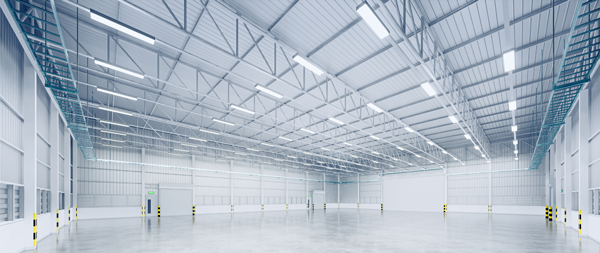
As we step into 2025, several leading organizations in the commercial real estate industry are anticipating the top trends for the industrial market. The JLL 2025 Global Real Estate Outlook report predicts that data-driven decision-making will be of paramount value in 2025. This aligns with findings that reveal 44% of manufacturing, industrial and logistics organizations identify poor access to data and analytics as a significant barrier to delivering value within their CRE teams. With that discovery, it is no surprise that there is a renewed value in improving data accessibility.
In the Colliers’ Resilience & Recovery: The Future of CRE report, the report emphasizes smaller warehouses, agile delivery solutions and data analytics as some of the top trends anticipated in the industrial sector for 2025. Their research corresponds with JLL’s 2025 Global Outlook report, which indicates that technology investments will drive growth and efficiency, particularly through the adoption of automation, such as collaborative robots.
Meaghan Elwell, JLL President – Industrials Division, Work Dynamics weighs in on her thoughts for the advancement of AI: “Our recent Future of Work Survey shows that 90% of organizations plan to accelerate investment in AI over the next five years,” Elwell says. “We anticipate these technologies will enable companies to better leverage data to drive efficiency and align with broader business goals. We believe that AI will be a powerful tool in optimizing productivity, fostering employee development and enhancing workplace safety.”
AI-powered analytics are transforming various sectors, including commercial real estate. Elwell emphasizes that these technologies will enhance predictive maintenance, optimize space utilization and support sustainability initiatives through advanced energy analytics and modeling. Additionally, the growing emphasis on efficiency will highlight the importance of improving the frontline workforce experience, a critical focus for 2025 and beyond.
Workforce shortages remain a top issue for the industrial sector. According to the National Association of Manufacturers’ (NAM) 2024 Fourth Quarter Manufacturers’ Outlook Survey , they cited that “attracting and retaining a quality workforce now ranks as the fourth highest concern.” On this note, Elwell offers her suggestions for industrial operators while addressing these shortages: “We advise our clients to enhance the employee experience for frontline workers, implement flexible work models and invest in employee development. Additionally, focusing on diversity and inclusion brings new perspectives, and leveraging technology like AI and automation can optimize operations and allow workers to concentrate on more strategic tasks.”
Employment growth seems to have notably slowed, particularly in the manufacturing sector, according to PwC’s National Association of Manufacturers’ Outlook Survey . Their results suggest that more than half of jobs that require specialized training are expecting significant change within the next five years. Additionally, with 62% of manufacturers planning to expand their frontline workforces over the next year, the survey underscores that manufacturers must “improve frontline workers’ experience by making the workplace more satisfying and meaningful in multiple ways that go well beyond attractive pay.”
The rising urgency in improving the frontline worker experience is echoed by Elwell who notes, “AI tools are enhancing skill development through personalized training and real-time feedback.” According to JLL’s 2025 Global Real Estate Outlook, by enhancing the frontline worker experience, this will be crucial to driving growth, attracting talent and increasing overall efficiencies.
As we explore the broader implications of AI in the industrial sector, its applications for enhancing sustainability and efficiency in real estate are also gaining momentum. Based on a report by the World Economic Forum, “The new [AI] technologies can enable public and private organizations to create effective sustainability strategies for single buildings and entire portfolios. A major area where we will see this unfold, and one that is underestimated, will come amid efforts to retrofit buildings.”
Elwell outlines other ways AI can drive progress in sustainability: “We're seeing AI optimize energy procurement, potentially increasing the use of renewable sources, while optimizing HVAC operations, reducing both energy consumption and costs. Perhaps most importantly, AI is helping create scenario-based decarbonization roadmaps, assisting companies in making plans to achieve their sustainability targets.”
The World Economic Forum predicts that AI will play a key role in retrofitting due to its capacity to thoroughly assess the existing conditions of buildings, including their structures, materials, energy systems and utilities. “Essentially, it’s about absorbing and analyzing vast amounts of data at scale and speed, making AI perfect for the job,” their report states.
2025 presents significant opportunities for technology investments and innovations within the industrial real estate sector. As manufacturers concentrate on enhancing the frontline worker experience while improving talent retention strategies, there is also a growing emphasis on sustainability and operational efficiency. This balance of priorities fosters optimism about the advancements and positive changes on the horizon.
Interested in more content like this? Read our recent articles, BOMA Marks Key Milestone Toward Lithium-Ion Battery Safety Legislation or BOMA International’s Top Events and Updates for 2025 .